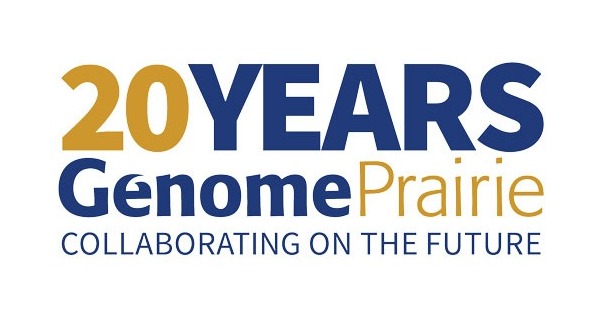Soon after the global pandemic began, Canada’s federal government committed $40 million to Genome Canada to launch the Canadian COVID Genomics Network (CanCOGeN).
CanCOGeN then partnered with the six regional Genome Centres, national and provincial public health labs and genome sequencing centres through hospitals, universities and the private sector. Genome Prairie is one of the six regional centres at the forefront of this activity and is ideally situated to facilitate a central Canadian response, with offices in both Saskatoon and Winnipeg.
On September 28, the Honourable Terry Duguid, Member of Parliament for Winnipeg South, spoke at an event hosted by Genome Prairie. “The government of Canada is proud to support the national CanCOGeN program and, in particular, the excellent initiative we are launching here today which showcases a real ‘Prairie powerhouse’ of expertise and ingenuity. COVID-19 respects no boundaries so the regional cooperation described today will develop solutions that don’t either,” said Duguid.
Sequencing projects
CanCOGeN coordinates and funds SARS-CoV-2 virus and host genome sequencing efforts, as well as supporting data sharing and analysis. The network comprises two separate yet integrated projects – the Virus Genome Sequencing Project (VirusSeq) and the Host Genome Sequencing Project (HostSeq).
Prong one – the virus side – is primarily focused on large-scale whole genome sequencing identifying genetic variations and mutations. This provides key information for COVID-19 surveillance, contact tracing, tracking, dispersal and management of the virus across Canada and beyond. Prong two – the host side – involves whole genome sequencing of virus-infected individuals to better understand variable responses to infections ranging from patients suffering mild discomfort to those with very serious respiratory complications.
A very complex problem
“Genome Prairie has the opportunity to take advanced lab technology directly to where ‘the rubber hits the road’ in order to provide genomic solutions to a very complex problem, specifically, COVID-19. For us, CanCOGeN funding translates into meaningful collaboration opportunities in the health care space. Manitoba and Saskatchewan residents can rest assured that Genome Prairie is addressing a global issue on a regional level, as well as building local capacity and infrastructure that did not exist pre-COVID-19,” said Dr. Gerald Brown, Interim President and CEO of Genome Prairie.
Genome Canada provided an initial $100,000 tranche of funding specifically to Genome Prairie to begin to build capacity for sequencing in Manitoba and Saskatchewan.
These funds have helped the provincial health labs – Manitoba’s Cadham Provincial Laboratory and Saskatchewan’s Roy Romanow Provincial Laboratory – increase local capacity and cover costs associated with sample preparation, extraction, handling and storage of clinical samples. Many of these samples are then shipped to the National Microbiology Lab in Winnipeg for whole genome sequencing (this is funded separately by Health Canada).
“Thanks to two decades of investment in Genome Canada, including a $40 million dollar investment in CanCOGeN, Genome Canada and the six regional Genome Centres were prepared to meet the COVID-19 challenge head on. CanCOGeN is a game-changer for Canada – strengthening coordination and data sharing across regions, informing critical decision-making by public health authorities, and building national capacity to address future outbreaks and pandemics,” said Dr. Catalina Lopez-Correa, Executive Director of CanCOGeN.
Cooperation between provincial labs
Genome Prairie’s third prong is funding of a COVID-19 specific research project which highlights collaboration across our two provinces. Dr. Andrew Cameron, a microbial geneticist at the University of Regina, together with virologist Dr. Amanda Lang at the Romanow Provincial Lab and molecular epidemiologist Dr. David Alexander of the Cadham Provincial Lab in Winnpeg, are leading Genome Prairie’s COVID-19 Rapid Regional Response (COV3R) project. The project includes a partnered funding contribution from Saskatchewan Health Research Foundation.
COV3R aims to tackle the problem of detecting co-infections and, at the same time, to provide powerful new tools for public health. Coinfections can allow several pathogens to work together and become deadly. Not much is currently known about the impact of coinfections with COVID-19, and the identity of known viruses, or previously unknown viruses, which may cause more serious complications.
